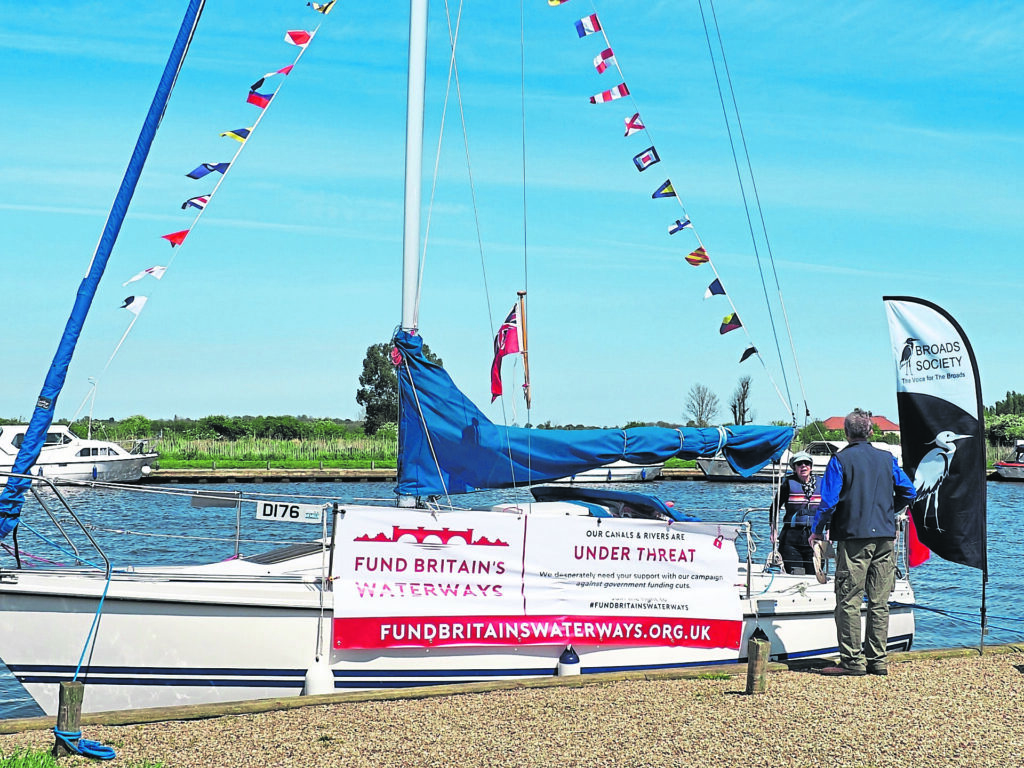THOUSANDS of boat owners and Norfolk Broads waterway businesses will pay an extra 5.9% in navigation fees this coming year.
The Broads Authority agreed the rise but has set a budget which will mean cuts in its own services.
It has contacted the Environment Minister Steve Reed for help, saying its current model of funding is “unsustainable” for an area that attracts 7.5 million people a year.
The rise in fees will affect 11,500 boats that use the 125 mile Norfolk and Suffolk Broads, but electric day boats and sailing vessels will not pay any increase.

A Broads Authority spokesman said: “The authority is acutely aware that in the current economic climate any increases to the charges will come as a blow to private boat owners and hire boat operators. Currently the only means of funding the navigation of the waterways of the Broads is through these charges.
“The authority is of the view that the current model of funding is unsustainable and has written to the Secretary of State for Environment explaining the difficulties and requesting central Government funding to contribute to navigation. To date we have not received a reply.
“The income raised through tolls funds the maintenance of the waterways (including dredging, water plant cutting and moorings), fuel, rangers, maintenance staff, tolls staff to administer the charges and chase non-payers… to name but a few. All these costs have been consistently rising way above the rate of inflation which is not based on all these items or indeed raw materials such as wood and steel which are extensively used by the authority. This comes at a time when income is falling.”
The news will not come as a shock to the Inland Waterways Association which has long argued that the Norfolk and Suffolk Broads need proper funding. It says tourism in the Broads contributes £775 million to the Norfolk and Suffolk economies and supports over 7000 jobs.
The Broads receives £3.4m of National Park Grant funding from Defra a year and generally the government money cannot be used for navigation costs unless the work benefits the whole of the navigation. This means it relies heavily on income from boat fees to carry out essential repairs and maintenance work.
Sue O’Hare, chair of IWA’s navigation committee, said: “Through Fund Britain’s Waterways, the IWA is campaigning for adequate national and local government funding for all Britain’s navigable rivers and canals to ensure that future generations can continue to enjoy their many benefits. The circumstances of the Broads are unique but the need for funding is universal.”
The IWA has also lobbied the government, citing the well-being benefits and value to wildlife of maintaining the Broads.
The Broads Authority is the only major inland navigation authority that does not receive government funding to support maintenance of navigation. Governments have argued that use of the Broads waterways is a private benefit which should not be funded, according to the IWA.
The IWA said: “The IWA will not let the network fall into disrepair again and for this reason joined with partner organisations in June 2023 to launch the Fund Britain’s Waterways action group, with the single purpose of campaigning collectively for an increase in government funding of Britain’s inland waterways to avert their decline, and to promote awareness of the huge economic, environmental and social well-being value they provide.
“To date, more than 140 waterway and non-waterway organisations representing hundreds of thousands of waterway users and supporters have joined Fund Britain’s Waterways and the IWA continues to play a leading role on the steering group. Canals and rivers are valuable assets which contribute to the country’s economic recovery, as highlighted by our Waterways for Today report, so it is vital that we act now to protect them for future generations.”To find out more about the IWA campaign, go to: https://waterways.org.uk



